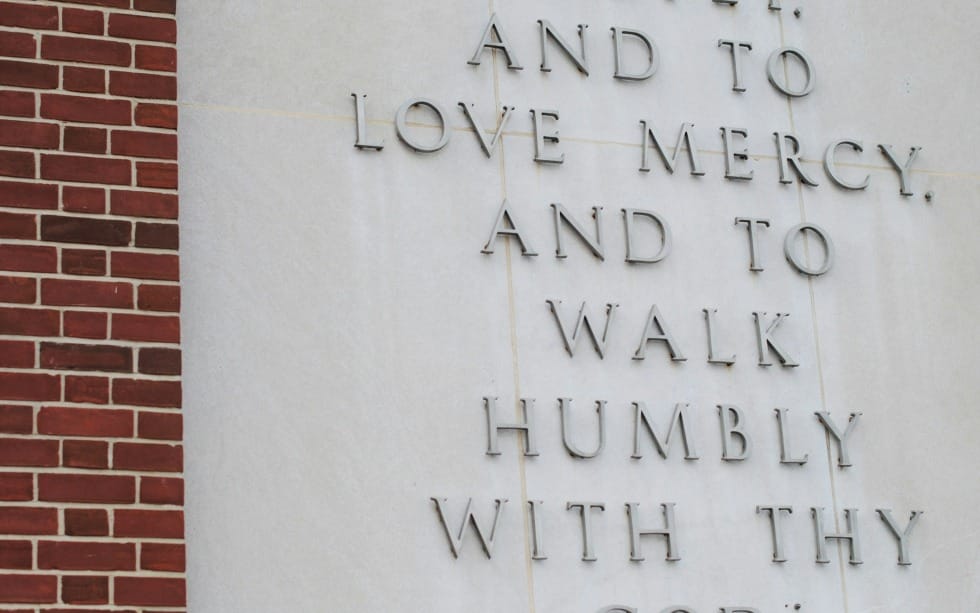What Does God Require of Me? (Micah 1-7)
What does God want from you? Micah 6:8 gives a timeless answer: act justly love faithfulness and walk humbly with your God.

Micah 1-7
Today's Scripture Passage
A Few Thoughts to Consider
“What does God want me to do?”
Many have asked this question, and thankfully, the Book of Micah gives us some answers. The central theme of this book is a call to social justice and righteousness. This book was set during the 8th century BCE, a tumultuous period in the history of Israel and Judah. The northern kingdom of Israel faced the Assyrian threat, culminating in its fall in 722 BCE. Micah's ministry occurred during the reigns of Jotham, Ahaz, and Hezekiah, kings of Judah. This era was marked by social injustice, idolatry, and political instability. Micah, a contemporary of the prophets Isaiah, Amos, and Hosea, addressed these issues, calling for repentance and emphasizing the need for social justice and faithfulness to God. This time was also marked by an economic revolution.
“Unfortunately,” as Leslie Allen notes, “the influx of material prosperity had spawned a selfish materialism, a complacent approach to religion as a means of achieving human desires, and the disintegration of personal and social values. Wealth was invested in land, with the result that the traditional system of agricultural small holdings collapsed with the growth of vast estates, and material and emotional distress ensued.”[1] Allen continues by writing, “Age-old sanctions associated with the divine covenant were shrugged off, and social concern was at the bottom of the list of priorities of national and local government officials. Even religious leaders priests and prophets did little more than echo the spirit of the period, buttressing the society that gave them their livelihood.[2]
It’s in this setting that God calls Micah to speak as his representative to the people and to deliver a stern warning. Allen writes, “As a countryman from the fertile lowlands of southwest Judah, doubtless he had firsthand knowledge of the sufferings of the rural proletariat and was thus providentially prepared to voice God’s own indignation. This Amos of the Southern Kingdom realized that the God of the nation could not lightly be brushed aside.”[3]
In Micah 6:6-7, the prophet presents a hypothetical dialogue where the people of Israel ask how they can appease God and make amends for their sins. They propose extravagant offerings, including burnt offerings, thousands of rams, rivers of oil, and even their firstborn, highlighting their misunderstanding of what God desires. This rhetorical questioning sets the stage for this famous response from God in Micah 6:8: “Mankind, he has told each of you what is good and what it is the Lord requires of you: to act justly, to love faithfulness, and to walk humbly with your God.”
Lawrence Boadt observes, “The rabbis who commented on this verse in the early centuries of the Christian era called it a one-line summary of the whole Law.”[4] And J. M. P. Smith labels this verse “the finest summary of the content of practical religion to be found in the OT.”[5] While Micah 6:8 certainly wasn’t an exhaustive list of God’s commands, it was a baseline. “Micah is calling Israel to a minimal standard of behavior that is recognized as what any sensible people should do.”[6]
To act justly “means to do the just thing yourself.”[7] To love faithfulness is to remember that God’s love is the basis for his covenantal relationship with his people throughout time. And to “’ walk humbly’ would be better rendered ‘walk carefully (with your God),’ which ultimately means ‘be careful to live the way your God wants you to.’”[8]





